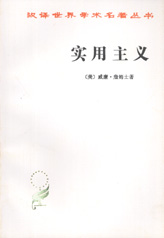牛津实用英语语法-第49章
按键盘上方向键 ← 或 → 可快速上下翻页,按键盘上的 Enter 键可回到本书目录页,按键盘上方向键 ↑ 可回到本页顶部!
————未阅读完?加入书签已便下次继续阅读!
I arranged that they should be met.
我安排人去接他们。
G 不定式的进行式常常用在appear,happen,pretend和seem等动词之后:
I happened to be looking out of the window when they arrived.
他们到达时我碰巧正向窗外望去。
He seems to be following us.
他似乎在跟着我们。
不定式的进行式也可用在 agree, arrange, decide, determine, hope, manage, plan之后和助动词之后。(参见第254节。)
H 不定式的完成式可以用在appear,hope,pretend,seem等之后和助动词之后。(参见第255节。)
?
'Amber demo'
242 动词+ how/what/when/
where/which/why+不定式
?
A 这类动词中最常用的有 ask, decide, discover, find out, for- get,know, learn, remember, see(= understand/perceive),show+宾语, think, understand, want to know,wonder:
He discovered how to open the safe.
他发现了打开保险柜的方法。
I found out where to buy fruit cheaply.
我找到了买便宜水果的地方。
I didn’t know when to switch the machine off.
我不知道什么时候关掉机器。
I showed her which button to press.
我告诉她应该按哪一个按钮。
She couldn’t think what to asy.
她想不出说什么。
(注意:这种结构不常用于动词think的现在式和过去式之后,但可以用于think的其他形式之后,或者如上面最后一个例句那样,用于前面还有一个助动词的think之后。)
B whether+不定式同样可以用于 want to know, wonder之后:
I wonder/wondered whether to write or phone.
我不知道应该写信还是应该打电话。
这种结构还可以用于表示否定意义或疑问意义的decide, know, remember和 think后面:
You needn’t decide yet whether to study arts or science.
你现在不必决定学习文科还是理科。
He couldn’t remember whether to turn left or right.
他没记住向左拐还是向右拐。
C ask,decide,forget,learn,remember 等词后也可以直接跟不定式。(参见第241节。)但其含义并不一定相同。
learn how+不定式(=acquire a skill学会技能):
She learnt how to make lace.
她学会了怎样做花边。
如果是相当普通的技能,通常就不用how:
She learnt to drive a car.
她学会了开汽车。
learn+不定式(不带how)可以有另一种含义:
She learnt to trust nobody.
她信不过任何人。相当于:
She found from experience that it was better to trust nobody.
经验告诉她,谁都不可靠。
同时注意:
I decided to do it.
我决定要做这件事。相当于:
I said to myself,‘I’ll do it.’
我心里想:“我要做这件事。”
I decided how to do it.
我决定了如何去做这件事。相当于:
I said to myself,‘ I’ll do it this way.’
我心里想:“我要这样做。”
I remembered to get a ticket.
我没忘了弄一张票。(我弄到一张票。)
I remembered where to get a ticket.
我记得到哪儿买票。(我记得可以从音乐节办公室买到票。)
?
'Amber demo'
243 动词或动词+宾语之后的不定式
?
A 这类动词中最重要的有 ask, beg, expect, would hate, help, intend,like(=think wise/right), would like(=enjoy),would love, mean, prefer, want, wish:
He likes to eat well.
他喜欢吃得好一点。
He likes his staff to eat well.
他喜欢要他的工作人员吃得好一点儿。
I want to ride.I want you to ride too.
我想骑马。我想要你去骑马。
B ask和 beg
ask+不定式的含义与ask+宾语+不定式不同:
I asked to speak to Mrs Jones.
我要找琼斯太太谈话。相当于:
I said,‘Could I speak to Mrs Jones?’
我说:“我能跟琼斯太太讲话吗?”
但是:
I asked Bill to speak to her.
我要比尔找她谈一谈。
I said,‘Bill, would you speak to her?’
我说:“比尔,请你找她谈一谈好吗?”
beg也是同样情况,尽管beg之后通常不直接跟不定式:
I begged(to be allowed) to go.
我请他允许我去。相当于:
I said,‘Please let me go.’
我说:“请让我去。”
I begged him to go.
我要求他去。相当于:
I said,‘Please go.’
我说:“请你去吧。”
ask和beg后面可接that…should结构。(参见第235节。)
C expect+不定式和expect+宾语+不定式可有相同含义:
I expect to arrive tomorrow.
我预计明天到达。相当于:
I think it is likely that I will arrive tomorrow.
我想我很可能明天到达。
I expect him to arrive tomorrow.
我预计他明天到达。相当于:
I think it is likely that he will arrive tomorrow.
我想他很可能明天到达。
但expect+宾语+不定式常常含有义务的意思:
He expects his wife to bring him breakfast in bed at weekends.
他指望他妻子在周末把早饭送到床边。(他认为他妻子有义务这样做。)
expect后面也可跟that+主语+动词结构,这时不含有义务的意思。
D 关于 care, hate, like, love和 prefer与不定式或动名词连用的例句请参见第294至第298节。intend,mean和want后面也可接动名词。(参见第266节。)
?
'Amber demo'
244 动词+宾语之后的不定式
?
A 这类动词中最重要的有:
advise牋牋牋牋牋牋牋?forbid牋牋牋牋牋牋?make(b)牋牋牋?show how
allow牋牋牋牋牋牋牋牋?force牋牋牋牋牋牋牋 oblige牋牋牋牋牋牋牋?teach/teach how
bribe牋牋牋牋牋牋牋牋?hear(b)牋牋牋 order牋牋牋牋牋牋牋牋 tell/tell how
mand牋牋牋牋牋 implore牋牋牋牋牋?permit tempt
pel牋牋牋牋牋牋牋 induce牋牋牋牋牋牋 persuade牋牋牋牋牋?train
enable牋牋牋牋牋牋牋?instruct牋牋牋牋牋 remind牋牋牋牋牋牋?urge
encourage牋牋牋牋牋 invite牋牋牋牋牋牋牋 request牋牋牋牋牋牋?warn
entitle牋牋牋牋牋牋牋牋 let(b)牋牋牋牋?see(b)牋牋牋牋牋 watch(b)
feel(b)
(b)意指“不带to的不定式”。(参见第246节。)
advise,allow和permit也可以与动名词连用。
(关于表示知道和思想一类意思的动词,参见第245节。)
B 动词+宾语+不定式举例如下:
These glasses will enable you to see in the dark.
这眼镜能使你在黑暗中也能看到东西。
She encouraged me to try again.
她鼓励我再试一遍。
They forbade her to leave the house./She was forbidden to leave the house.(较常用)
他们不允许她离开房间。/不许她离开房间。
Nothing would induce me to do business with them.
什么也不能诱使我同他们打交道。
They persuaded us to go with them.
他们说服我们同他们一起走。
They are training these dogs to sniff out drugs.
他们正在训练这些狗嗅出毒品。
C show/teach/tell+how
show 与不定式连用时要加 how:
He showed me how to change a fuse.
他给我示范怎样换保险丝。
tell how +不定式(= instruct教):
He told me how to replace a fuse.
他教我怎样换保险丝。(他给我必要的知识或说明。)
tell+宾语+不定式(= order命令):
He told me to change the fuse.
他叫我换保险丝。相当于:
He said,‘Change the fuse. ’
他说:“换一换保险丝。”
teach how(教……如何):
要表达教某人(如何)游泳、跳舞、打字、骑马等时可以说:
He taught me how to light a fire without matches.
他教我如何不用火柴就能点火。
对比较普通的技能提问时虽可以使用how,但how常可以省略:
He taught me to ride.
他教我骑马。
teach+宾语+不定式(不与how连用)也可以意指教导或训练某人以某一方式行事:
He taught me to obey all mands without asking questions.
他教我毫无疑义地服从命令。
D remind, show, teach, tell后面也可以接 that结构:
He reminded me that the road was dangerous.
他提醒我道路危险。
He showed me that it was quite easy.
他向我表明这是很容易的。
注意: tell+ that从句的含义不同于tell+不定式:
He told(= ordered) me to go.
他叫我走。
He told(= informed) me that I was late.
他告诉我说我迟到了。
E request 后面也可以接that+ should结构,这主要用于被动语态:
He requested that the matter should be kept secret.
他请求对这件事保密。
?
'Amber demo'
245 表示知道和思想等的动词之后的不定式
?
A 在 assume, believe, consider, feel, know, suppose, understand 等之后可接宾语+ to be:
I consider him to be the best candidate.
我认为他是最佳人选。
但that+普通动词的结构比这常用得多:
I consider that he is the best candidate.
(译文同上。)
宾语+不定式与 think, estimate和 presume 等动词连用是极少见的。这种表达方法常用that从句来代替:
I think that he is the best player.
我认为他是最好的演奏家/演员/运动员。
It is estimated that the vase is 2,000 years old.
据估计这个花瓶有两千年历史。
B 然而,如果这些动词是以被动形式出现的,那么它们后面常常带不定式而不是带that结构:
He is known to be honest.相当于:
It is known that he is honest.
众所周知,他是个老实人。
He is thought to be the best player相当于:
It is thought that he is…
人们认为他是最好的演奏家/演员/运动员。
This vase is estimated to be 2,000 years old.
据估计这个花瓶有两千年历史。
C 注意suppose的被动态时往往有责任或义务之意:
You are supposed to know the laws of your own country.
你应该懂得你们自己国家的法律。相当于:
It is your duty to know/You are expected to know…
你有义务懂/人们认为你该懂……
D 在这些动词后面也可以用不定式的进行式:
He is thought to be hiding in the woods.
人们以为他正躲在森林里。(人们认为他正躲着。)
He is supposed to be washing the car.
他应该在洗车。(他该正在洗它。)
E 如果想到的是早先发生过的动作,则用不定式的完成式:
They are believed to have landed in America.
人们相信他们在美洲上了岸。(据信他们已登上了。)
supppose+不定式的完成式不一定有责任或义务之意。
They are supposed to have discovered America.相当于:
It is thought that they did.
人们认为是他们发现了美洲。
但 You are supposed to have read the instructions(你应已看过操作说明)通常意味着你本应看过。
(关于动词的被动式之后的不定式结构,另参见第306节。)
?
'Amber demo'
246 不带to的不定式
?
A can,do,may,must,shall,will之后接不带to的不定式:
They could do it today.
他们可以今天做这件事。
I may as well start at once.
我还不如马上就动身。
He will probably object.
他可能会反对。
B need和dare之后也接不带to的不定式,但它们不作为情态动词而是同助动词do/did或will/would连用时除外:
You needn’t say anything.
你不必说什么。
但是说:
You don’t/won’t need to say anything.
你不需要/将不需要说什么。
I dared not wake him.
我不敢叫醒他。
但是说:
I didn’





